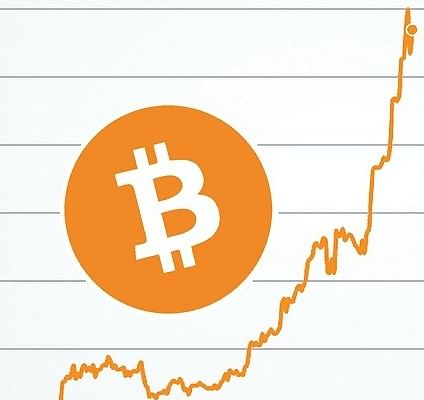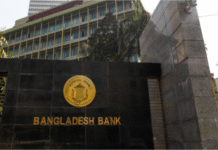
The fate of bitcoin looks up as the price of the digital currency rose by 83 per cent this month. The value of bitcoin stood at USD34,797 on Wednesday. Then, for the first time in the history of bitcoin, its value surpassed the USD35,000 mark mid-day on Wednesday. Earlier, it rose to more than USD34,000 on Sunday.
The value Bitcoin continued to soar since the coronavirus pandemic broke out. Digital currencies rose in value by 300 per cent in 2020. Not only Bitcoin, but other digital currencies also jumped in value. After bitcoin, Ethereum is the most popular digital currency and its value rose by 465 per cent in 2020.
Bitcoin first came to notice in 2013 after its value touched a USD400 mark. It saw a big change when prices soared to USD20,000 in 2017. But this fell soon, dropping to USD3,200 in December 2018. The value of bitcoin touched a USD10,600 mark in October 2018. Then again, prices began to skyrocket and zoomed to USD34,000 on 3 January before beginning to fall on the next day.
Bitcoin is now legal in most the countries in the world. But it’s still banned in several countries like Bangladesh, Egypt, Algeria and Morocco. Several others impose strict rules and regulations on the use of bitcoin.
Experts believe financial institutions show growing interest in bitcoin as an asset while its users argue that it is unseating gold as a store of value.
Experts think that price of US dollars may fall in 2021, stimulating further rise in the value of the bitcoin. Investors showed interest in the US dollar amid the uncertainty caused by coronavirus pandemic, raising the US dollar prices. Later it fell in the aftermath of unveiling several stimulus programme. Besides, credibility of bitcoin rose after payment gateways like PayPal accepted it. “The numbers keep going up as the market has seemingly never been more bullish,” Paolo Ardoino, the CTO of cryptocurrency exchange Bitfinex told The Guardian. “We see a very bright future ahead for all Bitcoin holders.”
Central banks of many countries have banned the use of bitcoin fearing an increase in crime
Debut at 2008
Satoshi Nakamoto, the pseudonymous creator of Bitcoin, created the first entry in the Bitcoin blockchain somewhere in Japan by the end of 2008. It was not an alternative to traditional currency. The creator of bitcoin wanted a mode of transaction where no third party would interfere and transactions would be virtually. Later more updates came along.
The main feature of bitcoin is transaction can be done without the surveillance of the central bank. Satoshi hoped it would work good avoiding the authoritarian government’s watch. The long-term negative outcome of the worldwide transaction between two parties is black-market. As the transactions take place solely between two parties, it’s difficult to trace. Say, for instance, someone bought bitcoin from another person in exchange of traditional currency. The bitcoin from that latter’s account is deposited to the formers’ account. Each time a transaction in bitcoin is made, a cryptocurrency miner ensures the authenticity. But no credential from government regulators is required. That’s why central banks of many countries have banned the use of bitcoin fearing an increase in crime.
However, bitcoin as investment tool is more volatile than gold. Experts say Bitcoin has no base foundation. As a result, if a bubble forms in the market it will burst easily. Many may lose capital. That’s why it can never be an alternative to gold, the majority of the experts felt.









